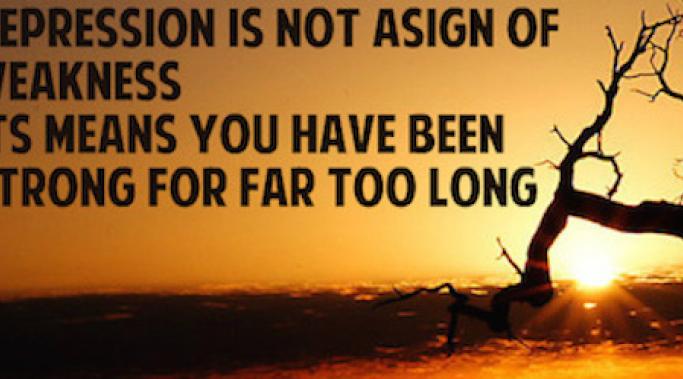Sometimes it feels like romanticization of mental illness is everywhere these days and this feeds mental health stigma. Whether it’s some trendy post about what mental health “is” or how people with mental health illnesses “actually” are, it’s pretty likely to be somewhere in the social media sphere. One of the ones that bothers me the most is the one about “being strong for too long.” I’ll elaborate on how it romanticizes mental illness and feeds mental health stigma.
Dealing with Stigma
Don't be fooled: peer support can help break mental health stigma. People often think of treatment as going to sit in some office on one of those couches and spilling out their souls, or attending meetings like Alcoholics Anonymous and having to announce who they are and what their problem is. Treatment doesn’t have to be either of these things. What I’ve discovered is that peer support groups can break mental health stigma and be just as healing.
Dealing with mental illness stigma is manageable and I have learned this truth through the many experiences that I have had to face in my life (What Is Mental Illness Stigma?). However, it had been quite some time since I have felt severely stigmatized due to having bipolar disorder.
I am very open with the state of my mental health, and one of my main goals in life has been to eradicate mental illness stigma in every way possible. I even created the Bipolar Disorder Society of British Columbia, and I work immensely hard to provide assistance and education to people who are dealing with mental illness stigma. My hope is to truly instill in others that dealing with mental illness stigma is manageable.
Language can stigmatize people with mental illness, and I am quite sensitive to noticing all of the words that seem to counteract society’s movement toward removing stigma for people who live with mental illness. Do you ever cringe when you hear the word "crazy" or "psycho?" I do. I feel that we have come so far in many respects in shaping our stigmatizing language for the good of many groups such as the terms, "gay," "retarded" or "lame," so why are we still so stigmatizing with language when it comes to mental illness?
Mental illness stigma may tell you that your life is over. Stigmatized individuals, even family and friends, will assume that there is no hope, no recovery, and certainly no real life to live upon the diagnosis of a mental illness. It is infuriating when this happens, and, in my opinion, the diagnosis of a mental illness may actually spell the beginning of a new life and a life worth living, especially since a debilitating mystery has finally been solved. Mental illness stigma may tell you that your life is over, but it isn't.
When mental illness stigma comes from your own friends, it can be a very jarring and hurtful experience. Even the people that you hold close and trust can be guilty of judgement, hurting you emotionally, and may even stigmatize you. I have been diagnosed with bipolar disorder for 13 years, and even as of late, I have had plenty of experience with friends and mental illness stigma.
Dealing with mental health stigma is a challenging and daunting task at times, and it may push us to our limits on a number of fronts. Not only do we often feel negatively about facing mental illness and self-stigma, but we have to deal with the stigma out there, which often hurts us emotionally and makes life all that more difficult to tackle. As we face the everyday, there are ways to deal with mental health stigma, whether it be from friends, family, society, or the media.
Recently, I have developed an intense fear of flying, and it is quite odd because it never used to be this way. In my mid-20s, I flew to South Korea twice, and I even passed out during the entire flight, snuggled beside the emergency exit. Things have definitely changed over the years, and having a mental illness has made traveling quite a bit more daunting. Not only because of the fears that crop up, but from encountering stigma during my travels.
Mental health stigma affects parents with mental illness because society labels and judges them negatively. Parents with mental illnesses are often told that they are inadequate caregivers, simply because they have mental health challenges. They are accused of not being able to properly care for their children, especially on their own, and at times they are left battling for their right to be a parent. But parents with mental illnesses deserve more than mental health stigma.
I still fight the mental illness self-stigma that tells me not to let people know when I am affected by mental illness and feeling sick. When you have a mental illness, it is difficult to admit to other people that you are, indeed, affected by your illness. I feel weak at times and want to blame myself and my treatment team for my mental health relapse. And most of all, I fail to realize that this mental illness thing is going to affect me and there is nothing I can do about it.








